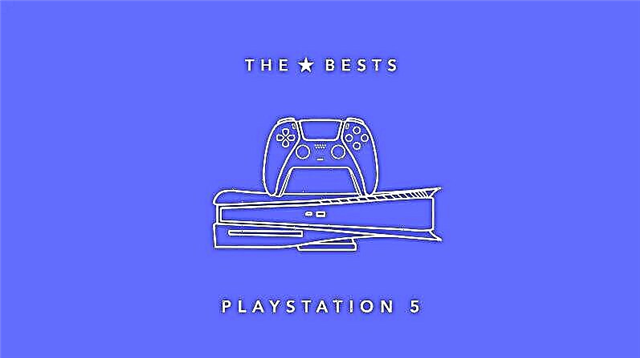Today, the Internet is a resource that is effectively used to express positive and negative points of view. In order to stop this, the rulers of various countries have introduced some restrictions to avoid the danger of influencing opinions. Someone might argue that such barriers are not good and it would be better to cooperate if they were in the place of these people.
Wikipedia defines Internet censorship as "controlling or suppressing what can be accessed, posted or viewed on the web." Sometimes, network censorship in countries is carried out without regard for human rights.
Below is a list of 10 countries that have censored the web, in order of increasing censorship:
10. Cuba
Network censorship in Cuba is represented as the lack of internet. Until a few years ago, Cubans were not even allowed to buy their personal computer systems! Only 5% of Cuba's population has Internet access. Others can use it only in public cafes, on average for $ 8. But a weekly salary of $ 20, this option is too expensive for them.
That is, by denying citizens access to the Internet, there is no need to introduce additional filters. And this is the lowest rank on the list. Most of the filters are applied to anti-government bloggers like Sanchez. Kubans are allowed facebook and twitter, but YouTube is prohibited.
9. Qatar
Qatar's censorship is regulated by Qtel. Qtel general manager Ahmed Rashid Al Suwaidi says Qtel is banning sites in an effort to "maintain ethical standards and protect public culture."
Qtel has a duty to block all sites that contain pornographic content or in any way criticize the leaders of the Gulf States. The site containing anti-Islamic information is also blocked.
Also, dating sites with content for people of non-traditional sexual orientation are promptly removed by the authorities. Adherence to such strict regulations has led to the restriction of obscene media sites.
8. China
The extreme measures taken by the government are often referred to as the "Great Wall of China". Besides the fact that a huge number of their journalists were arrested, Facebook and Twitter were blocked in 2009. YouTube, Facebook and Twitter are still not allowed in China!
China does not encourage internet use at all because the country is determined to build a strong economy. However, the Chinese government does not tolerate any form of online opposition. According to the OpenNet Initiative, in order to solve this problem, they have built the world's most sophisticated Internet filtering system.
7.Iran
Internet users in Iran are faced with the most stringent censorship system in the world. The Iranian government's web filters use a long blacklist of banned URLs to shield Iranians from content deemed inappropriate, rebellious. A large proportion of blocked sites are related to politics and government (40%), sexual content (20%).
Iranian authorities have taken a triple approach to internet restrictions and surveillance. Preventive, intercepting, reactive influences are used to form a consistent Internet control scheme. Iran's pervasive online censorship system has been called the "twelve enemies of the Internet."
6. Syria
Syria's network traffic is filtered using different methods. IP addresses and domain names are filtered to block single websites like amazon.com. Syria is one step ahead of Iran in limiting instant Skype and content hosting sites.
The media are limited to specific topics and pages, such as "The Syrian Revolution" on Facebook. All requests with the word "power of attorney" are blocked to limit ways to evade censorship. However, there is also an ad blocking effect.
5. Vietnam
The Vietnamese government adopted a regulation on the management, maintenance and use of Internet servers and online resources dated July 15, 2013; it entered into force on September 1, 2013.
The law blocks bloggers and social media users from quoting, collecting and summarizing information from the press or government websites. The main rationale for the law is national security. With a law that easily infringes on human rights, Vietnam is ranked fifth on the list.
4. Ethiopia
The Information Security Agency, or INSA, oversees the censorship of Ethiopia's Internet databases and websites. The government, through INSA, engages in actions that violate privacy and freedom of speech laws with complete impunity.
While the Internet user density is only 1%, there is a large community of bloggers whose websites, blogs and Facebook pages have been blocked by the government. For users, blocking looks harmless because the browser simply notifies the user that the page has timed out to load.
Given low internet usage and widespread privacy violations, Ethiopia overtakes Vietnam in the list of not free countries.
3. Sudan
The Sudanese government openly admits blocking and filtering websites that it considers immoral or blasphemous. Content that is “morally offensive and violates public morality” and “encourages evil in society” is filtered everywhere.
Sudan is notorious for database manipulation and self-censorship during the country's elections. There is no place for the media in it. All content is collated and filtered, which puts Sudan in third place in the top.
2. Saudi Arabia
The blocking in Saudi Arabia is based on two lists: "immoral" (mostly pornography); the rest is based on referrals from the Security Committee of the Ministry of the Interior.
Citizens are encouraged to actively report on "immoral" sites for blocking, hundreds of requests are received every week. Without hiding their actions, the authorities openly declare censorship and claim to have blocked about 4,000,000 sites. With widespread filtering, Saudi Arabia comes second on the list.
1. North Korea
Only a select few in North Korea are allowed internet access. Internet censorship at its best starts at the hotspot. There are only 1,024 IP addresses, as opposed to hundreds of millions in developed countries.
As shocking as it sounds, there is only one internet cafe in the North Korean capital, Pyongyang.
Anyone who logs into a cafe discovers a computer not running Windows, but Red Star, Korea's own operating system.
North Korea's technological infrastructure has been described as a "mosquito net" that allows only the essentials into and out of it. This network was opened in 2000 and includes a search engine, mail, news and a browser.
Only 1,000 to 5,500 websites work, with external sites on demand, albeit only after being downloaded, censored, and hosted locally. North Korea, with its mosquito nets, is at the top of the list.
We recommend watching:
Some sites are blocked in Russia, but these are flowers compared to what is happening in other countries.



